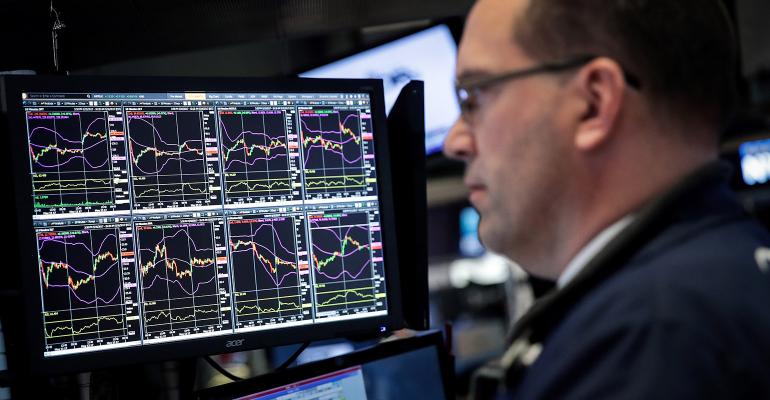By Yakob Peterseil
(Bloomberg) --Armed with the weapons of the passive revolution, investors are flocking to ETFs like never before to bet against entire asset classes in a single trade.
With hedge funds and institutions shorting everything from loans to oil in Wall Street’s annus horribilis, bearish speculators have fueled a surge in the revenue generated from lending out ETF shares, according to new research from IHS Markit. The amount of shares borrowed increased to a record.
These traders are borrowing shares to bet on price declines or to hedge long exposures in related assets. In a short trade, they borrow shares and sell them, before buying the securities back at a lower price and profiting from the difference -- provided the shares fall.
Exchange-traded funds appeal to the short sellers because “they allow for the efficient expression of a view on a wide range of asset classes,” IHS Markit said in a report.
Credit Bears
Short bets are paying off, as markets head for the worst performance in more than a century by one simple measure. Record bearish positioning has emerged in oil futures and investors have piled into bets against equities via popular ETFs during October’s rout.
Stock funds account for three quarters of 2018’s revenue from lending out shares, while commodities ETFs are less than 4 percent, the IHS data show. The total has reached $342 million already this year, on track to beat 2017’s tally of $345 million, while the supply of shares available to borrow has increased by $58 billion compared with last year’s average.
While credit ETFs account for around 20 percent of revenue from lending, they can lay claim to the biggest money spinners: Junk bond exchange-traded funds.
BlackRock Inc.’s HYG fund and State Street Corp.’s JNK product top the list of most revenue generated year-to-date from lending, according to the data. The two ETFs, with a combined $21 billion in assets, have become among the most-shorted funds in the world as U.S. high-yield spreads widen the most since December 2016.

The demand to short junk ETFs has boomed this year. Last month, the number of shares in the dealers inventory for the popular JNK ETF fell to zero, IHS Markit data show.
[etf fund:JNK]
Even recent inflows into BlackRock’s HYG fund are also likely a bearish play, reflecting create-to-lend activity rather than actual buyer demand, according to Mohit Bajaj, director of ETFs at WallachBeth Capital.
As credit faces some of the worst returns since the financial crisis, it’s easy to understand the bearish sentiment. But it’s an asset class that can be tough to short outright -- in some cases, ETFs are the best and most-liquid option.
One fund proving popular to bet against is the Invesco Senior Loan ETF, which tracks a portfolio of leveraged loans -- one of the year’s hottest asset classes.
[etf fund:BKLN]
“Only a small handful of the underlying loans have any availability in securities lending, so borrowing shares from long holders of the ETF is essentially the only means of sourcing the borrow,” Sam Pierson, director at IHS Markit, wrote in the report.
To contact the reporter on this story: Yakob Peterseil in London at [email protected] To contact the editors responsible for this story: Samuel Potter at [email protected] Sid Verma





